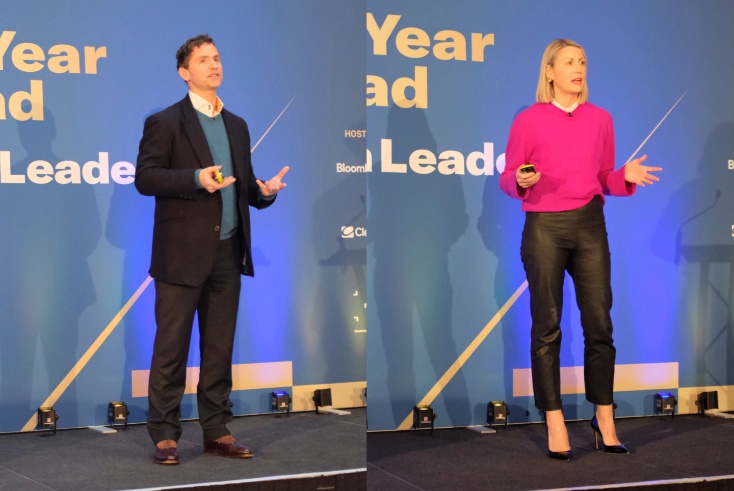Elections and more positive outlook to lead to strong year for advertising

2024 will be a big year for elections, AI, inflation and advertising.
These are some of the trends that Ian Whittaker, media analyst and founder of Liberty Sky Advisors, and Kelly Beaver, Ipsos UK and Ireland CEO, offered at The Year Ahead 2024, which took place in London last week.
Healthy advertising
Speaking to invite-only delegates at the Waldorf Hilton, Whittaker said 2023 had been “generally better than expected” and that 2024 would be “relatively benign”.
Climbing interest rates over the last few years was “probably one of the biggest factors” influencing stock markets and tech companies slashing adspend, according to Whittaker.
He remarked that the days of interest rates near 0% “are gone”, adding: “We are probably going to be in an environment of historically low interest rates, but not where we were with the same level of cheap money.”
But inflation over the past 18 months, while “stickier than we thought”, had allowed companies to put almost a decade’s worth of price increases through in a short period — something that is set to stay.
He did anticipate advertising to “be healthy this year” and, as long as corporate profitability held up well, predicted adspend would “continue to come through”.
More specifically, Whittaker did not expect the tech giants — which he dubbed “the Magnificent Seven”, including Meta and Google — to have quite as good a year in 2024, while predicting the subscription VOD market “flatlining” in all major markets as it was “hard to see further penetration”.
On the other hand, he expected broadcasters and retail media to perform strongly.
Whittaker summarised: “I think 2024 generally will be a good year. It will be quite benign and the advertising space will do quite well. There will be ups and downs as usual, but I think in terms of media we will have a continuation of 2023.”
Election fever and echo chambers
Meanwhile, Beaver focused on the political and societal changes that advertisers need to be aware of based on Ipsos data.
A recent survey found that British people were “generally net pessimistic” about most things, but particularly about the economy.
However, citing Ipsos data on overall optimism in the country and how this presents opportunities for the ad industry, Beaver said: “In 2023, people would say it was a bad year for the country. This year, nearly two-thirds say 2024 will be better than 2023. When there’s optimism, there’s consumption. That’s a positive sign as we go into the year ahead.”
She described 2024 as “a bumper year for democracy”, with a record 4.5bn people around the world going to the polls, including the US, UK and India.
This, alongside other major events such as the Paris Olympics, will lead to an uplift in advertising. In particular, Beaver highlighted, the US is set to spend $10bn on political advertising this year.
As a result of this huge election year, she anticipated “a lot of tactical analysis” into audience segmentation to consider how each political party can target different groups with tailored messages.
At the same time, she warned of a proliferation in AI-created images, audio and video that will be used.
Beaver continued: “What we are likely to see throughout the course of 2024 is a real difficulty in distinguishing for the British public between what is real and what is not real.”
Furthermore, she urged delegates to be aware of how the public — rather than the media and advertising industry — perceives AI. Beaver highlighted that just 7% of the UK population have experimented with AI, compared with 80% of business leaders.
In addition, she cited 2022 Thinkbox research that found advertising professionals were twice as likely to use Instagram and Twitter than the public — with the figure even higher for TikTok. Therefore, Beaver reminded the industry to “recognise the importance of understanding the public”, many of whom like the News at Ten and are on Facebook.
Beaver concluded: “There’s quite a big gap between what is perceived from execs in places like this room and what the public thinks on AI, on climate, on diversity and on ‘woke’ issues. So, please, do get out of your echo chamber.”




